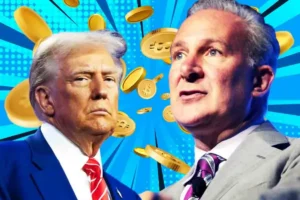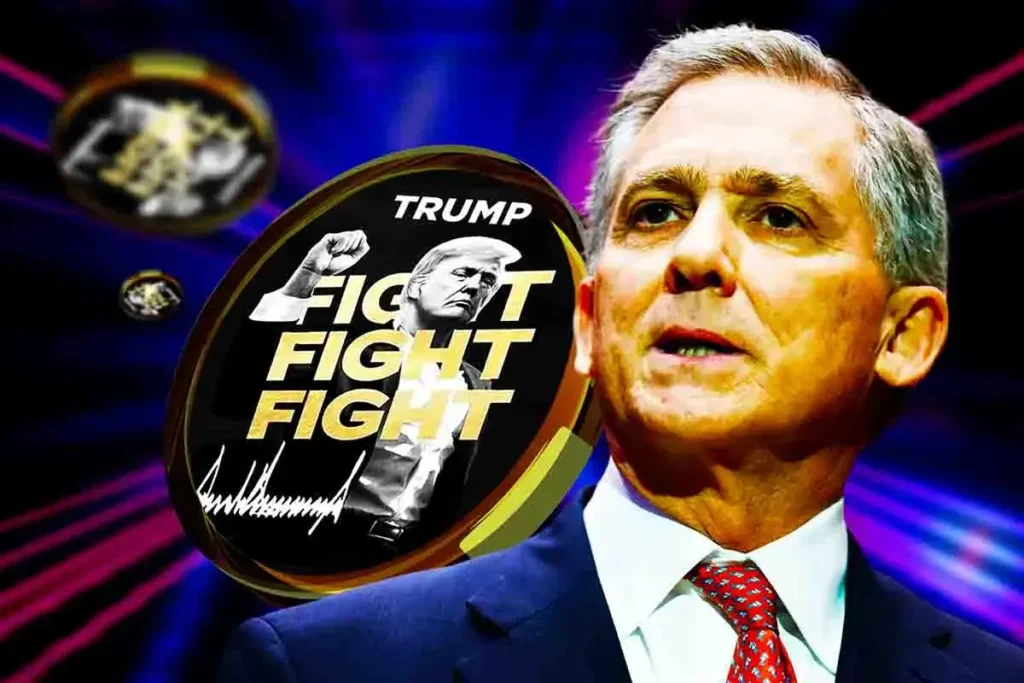The Impact of TRUMP Coin on Crypto Legislation: A Call for Focus in Congress
In recent discussions about cryptocurrency regulation, U.S. House Financial Services Chairman French Hill has raised concerns regarding the implications of the TRUMP coin and its impact on the legislative process surrounding crypto. Hill characterized President Donald Trump’s engagement in the crypto space as a significant distraction, complicating efforts in Congress to establish a comprehensive regulatory framework. This article examines the critical response to the TRUMP coin, the ongoing legislative efforts, and the broader implications for the future of cryptocurrency regulation.
Distraction Amidst Legislative Efforts
According to a recent Bloomberg report, Hill emphasized that the ongoing involvement of the Trump family in the crypto market has derailed the crucial bipartisan initiatives Congress has been working on. Both Republicans and Democrats have shown frustration as their long-term plans to legislate stablecoins and a market framework are impeded by this new dynamic. The Congressional discourse has shifted from crucial regulatory discussions to unwarranted controversies induced by the emergence of meme coins such as the TRUMP coin.
Growing Political Opposition
The sentiments expressed by Hill echo those of several U.S. Democrats, notably Senator Elizabeth Warren and Representative Maxine Waters. These lawmakers have articulated concerns that the current crypto legislation may inadvertently support Trump’s alleged questionable dealings within the crypto industry. Waters has even introduced the “Stop TRUMP In Crypto Act,” a proposal aimed at preventing the President, Vice President, and members of Congress from participating in crypto activities. Such legislative actions further reveal the increasing polarization surrounding cryptocurrency regulation, which complicates the process of reaching a consensus on necessary reforms.
A Path Forward
Despite these distractions, Chairman Hill believes that lawmakers should refocus their efforts on advancing the stablecoin bill and the broader market framework that has been in development for several years. He argues that if Congress members are genuinely concerned about the ramifications of TRUMP coin and similar ventures, their time would be better spent collaborating to pass effective legislation instead of engaging in contentious debates. The proposed legislation aims to clarify the operation of digital assets within the economy and create a structured approach to managing cryptocurrencies.
Legislative Milestones
Interestingly, a sense of urgency is building around crypto legislation. According to journalist Eleanor Terrett, the amendment process for the stablecoin bill is set to begin soon, as the U.S. Senate has voted to recommit the GENIUS Act to the amendment phase. Concurrently, the Digital Asset Market Clarity Act has been introduced in the U.S. House, aiming to shed light on the complexities of the crypto landscape. This momentum in legislative action indicates a recognition of the need for regulatory clarity in the evolving digital asset market.
Industry Support
The call for regulatory clarity has garnered support from various stakeholders in the crypto industry. Notably, Ripple’s Chief Legal Officer, Stuart Alderoty, lauded the introduction of the Clarity Act, describing it as a significant milestone for U.S. crypto regulation. This industry backing demonstrates a willingness among crypto leaders to engage constructively with lawmakers to ensure the future of digital assets is placed on a solid legislative foundation.
Conclusion: The Road Ahead
As the focus on crypto legislation continues, it is imperative that lawmakers navigate the discussion without the distractions posed by personal ventures such as the TRUMP coin. With bipartisan efforts to establish clear and comprehensive regulations underway, stakeholders in both the government and the crypto industry must unite to create a framework that fosters innovation while safeguarding public interests. With the impending amendment processes and the introduction of new legislative acts, the road ahead offers a hopeful outlook for clearer and more effective cryptocurrency regulations in the United States.

















